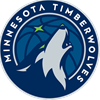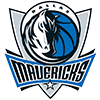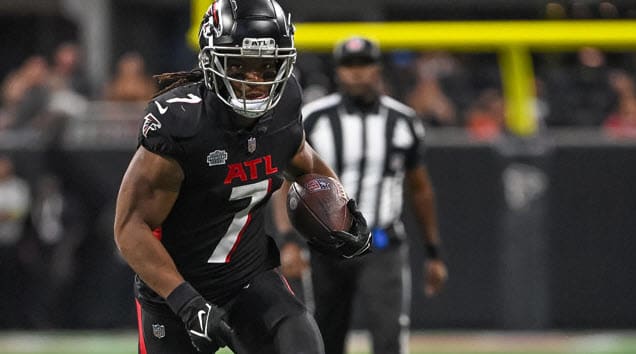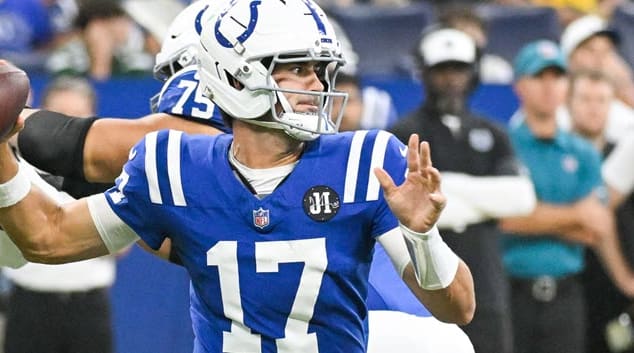The last Job Battles article addressed the relevant quarterback showdowns, and this one will start on the running backs. I'll have to make this a two-part article since I ran it a bit long.
The blurbs sort by descending alphabetical order of the team location. The players within a blurb are listed from left to right in descending seniority, not favor.
Rod Smith vs. Bo Scarbrough, Dallas
Smith (6-foot-3, 235) and Scarbrough (6-foot-1, 229) are similar in the sense that they are both former high-level recruits (especially in Scarbrough's case), and in that they are big backs with uncommon athleticism for their builds.
They are different in that Smith has several years of NFL experience, including a breakout 2017 season where he served with Alfred Morris as co-backup to Ezekiel Elliott, specifically handling the passing-down snaps in that setting. In totaling 232 yards (4.2 YPC) and four touchdowns while catching 19 passes for 202 yards and a score, Smith established himself as the favorite to back up Elliott in 2018.
Whereas Smith's passing-down work is a demonstrated strength, Scarbrough fell to the seventh round of the draft in large part due to questions about his ability to contribute in the passing game. As a pure runner, Scarbrough is intimidating with a 4.52-second 40, 40-inch vertical, and 129-inch broad jump, so he would project for some amount of upside if he ever secures a big workload. But between his potential pass-catching limitations and a history of persistent injury troubles
The last Job Battles article addressed the relevant quarterback showdowns, and this one will start on the running backs. I'll have to make this a two-part article since I ran it a bit long.
The blurbs sort by descending alphabetical order of the team location. The players within a blurb are listed from left to right in descending seniority, not favor.
Rod Smith vs. Bo Scarbrough, Dallas
Smith (6-foot-3, 235) and Scarbrough (6-foot-1, 229) are similar in the sense that they are both former high-level recruits (especially in Scarbrough's case), and in that they are big backs with uncommon athleticism for their builds.
They are different in that Smith has several years of NFL experience, including a breakout 2017 season where he served with Alfred Morris as co-backup to Ezekiel Elliott, specifically handling the passing-down snaps in that setting. In totaling 232 yards (4.2 YPC) and four touchdowns while catching 19 passes for 202 yards and a score, Smith established himself as the favorite to back up Elliott in 2018.
Whereas Smith's passing-down work is a demonstrated strength, Scarbrough fell to the seventh round of the draft in large part due to questions about his ability to contribute in the passing game. As a pure runner, Scarbrough is intimidating with a 4.52-second 40, 40-inch vertical, and 129-inch broad jump, so he would project for some amount of upside if he ever secures a big workload. But between his potential pass-catching limitations and a history of persistent injury troubles at Alabama, the rookie will enter camp as the underdog.
Devontae Booker vs. Royce Freeman, Denver
Booker has underwhelmed as a runner in his two NFL seasons, turning 253 carries into just 911 yards (3.6 YPC) and five touchdowns, but his utility as a pass catcher implies he'll remain a significant part of the Denver backfield even if Freeman, the rookie third-round pick, pushes him out of the starting lineup.
On the other hand, you probably should expect Freeman to do just that. At 6-feet, 229 pounds, Freeman boasts a 4.54-second 40-yard dash and plus agility (6.9-second three-cone drill), and he heads into the NFL after totaling 5,621 yards (5.9 YPC) and 60 touchdowns rushing in 51 games, adding 79 receptions for 814 yards and four touchdowns. Booker finished his college career with a rushing average of 5.0 YPC in the same conference.
LeGarrette Blount vs. Kerryon Johnson, Detroit
Matt Patricia is allowing Jim Bob Cooter to remain the offensive coordinator in Detroit, but he made the executive decision to change the team's running back management. Gone is the crew of pseudo running backs led by Ameer Abdullah and Theo Riddick, replaced by the grinder ethos represented by Blount and Johnson. This is a case of an obvious stopgap and heir. The question is the rate at which the succession occurs, as well as the share split in the meantime.
Blount finished last year with 766 yards (4.4 YPC) and two touchdowns for Philadelphia, illustrating the floor he offers as a between-the-tackles runner. The openings will be fewer in Detroit, though, and Blount is infamously ill-fit for passing game tasks. That's one area of immediate advantage for Johnson, though it might be a moot one if Riddick remains prominent in the offense.
Johnson (6-feet, 213 pounds) is a player I'm low on – his Auburn career rushing average of 4.8 YPC is a red flag to me despite the 2,494 yards and 32 touchdowns he accumulated, and his athleticism is probably only average – but the Patricia regime is clearly high on him, trading up in the second round to secure his rights. That means for whatever questions Johnson might face, opportunity is not one of them. He will get his carries eventually – what's left to sort out are the questions of when, and how much he'll do with them for how long.
Ty Montgomery vs. Jamaal Williams vs. Aaron Jones, Green Bay
This is an absolute mess. Montgomery and Jones are talented open-field slashers with uncommon pass-catching skills, while Williams stands out as the most rugged and durable of the three, though a plenty competent pass catcher in his own right.
Williams is the least effective pure runner of the three, averaging just 3.6 YPC last year, but the durability troubles of Montgomery and Jones might leave Williams as the de facto lead back anyway. The problem then is the question of whether Williams can convert this role into one of mainstream fantasy utility even as Montgomery and Jones nip at his heels and tempt Green Bay with an obviously superior explosive element.
It all has the look of permanently fluctuating situation, one where weekly projections can only be narrowed by injuries.
Marlon Mack vs. Nyheim Hines vs. Jordan Wilkins, Indianapolis
This is an interesting collection of varied skill sets carrying similar levels of pedigree in a wide open backfield.
Mack should be considered the general favorite after running for running for 358 yards (3.8 YPC) and three touchdowns as a rookie fourth-round pick last year, adding 21 receptions for 225 yards and a touchdown. He's not as fast as Hines, the flashy and more trendy rookie fourth-round pick, but Mack's skill set is more developed to the point that he's more elusive than Hines, even if he can't win a race in a straight line.
Hines has all the hype right now, but he's been more theory than practice to this point. Hines is an accomplished track athlete with 4.38 speed and the ability to line up at wide receiver – the position he played the two years prior to last – but the North Carolina State product has more tools than skills to this point. His ability to anticipate openings and utilize space generally lags behind his athleticism, which resulted in him turning 36 targets into just 26 receptions for 152 yards last year. Hines is often compared to Alvin Kamara, but this is entirely off the mark. While Hines would turn into a fantasy asset if he secures playing time, especially in PPR formats, in the meantime a comparison to Tyler Ervin is objectively more fair.
Wilkins is third in this race at the moment, but between the lacking tenure of Mack and Hines and Wilkins' own subtly encouraging traits, he shouldn't be written off. The biggest of the three at 6-foot-1, 216 pounds, Wilkins ran a 4.53-second 40-yard dash at his pro day, and he otherwise showed a developed skill set as a runner at Mississippi. Although Wilkins was drafted a round later than Hines, Wilkins is likely the better pure runner if his career 1,751 yards (6.3 YPC) and 14 touchdowns are any indication.
Spencer Ware vs. Charcandrick West vs. Damien Williams vs. Kerwynn Williams, Kansas City
Kareem Hunt is the king in the Kansas City backfield, but his history of ankle troubles at Toledo highlights the need to correctly identify his backups for emergency scenarios.
Ware would normally be the heavy favorite – he was in line to compete with Hunt for the starting role last year, after all – but it's tough to tell if his knee injury from last year robbed him of talent. The Chiefs appear quite concerned about as much, or else it's hard to see why they'd bring in the overqualified duo of Damien and Kerwynn Williams to round out their top five at the position.
It's also difficult to tell whether the Williams signings are indicative of disappointment with West after averaging just 3.4 yards per carry over the last two years. Both of the Williamses started games last year and both offer standout passing-down skill sets, so it wouldn't be surprising if they end up No. 2 and 3 on the depth chart in some order.
Malcolm Brown vs. John Kelly, Los Angeles Rams
Brown is the incumbent backup to Todd Gurley, but one with a flimsy resume and only the slightest bit of tenure. Brown was undrafted out of Texas in 2015 where, despite his status of a former blue chip recruit, he finished his career with just 2,678 yards (4.3 YPC) and 24 touchdowns in four years. Injuries were a major problem as well. No one should consider it meaningful that he totaled 246 yards (3.9 YPC) and a touchdown off the bench last year.
Kelly has some questions of his own after averaging just 4.1 yards per carry last year for Tennessee, but the fact that he totaled 795 yards (5.8 YPC) prior to last year tempts one to blame his 2017 struggles on the Tennessee offense crumbling around him. He showed a developed pass-catching skill set at the very least, catching 37 passes for 299 yards, though his upside might otherwise be limited by athleticism that's average at best (4.64-second 40, poor agility drills). Still, as a sixth-round pick Kelly offers superior pedigree to Brown right off the bat, and his ability to contribute as a receiver would make him an interesting FAAB pickup if Gurley should miss any time.
Frank Gore vs. Kalen Ballage, Miami
What a weird collision of contrasts this battle will be. Gore is rightfully the favorite as a crafty veteran universally respected by his peers, but he's a small, scrappy overachiever whereas Ballage is a Create A Player freak with production much less than what you'd expect given his rare combination of size and athleticism.
Gore stands 5-foot-9, 212 pounds and ran in the 4.6s even when he was young. Ballage is 6-foot-2, 228 pounds with 4.46 speed. Whereas Gore always had to exceed the sum of his parts, Ballage struggled to harness his immense talent at Arizona State, where he never displaced DeMario Richard as starter despite Richard going undrafted and then quickly getting cut by the Falcons in OTAs. Arizona State even experimented with moving Ballage to defensive end early in his career.
If Ballage does hit a higher-end outcome in his range of possibilities, the fact that he's already a developed pass catcher would help propel him toward that. Ballage sometimes struggled to run out of the backfield (4.4 YPC), but his 76 receptions over the last three years show what he can do out wide. Indeed, it wouldn't be surprising if Ballage moved to tight end or at least a Marcel Reece sort of role down the road.
If Gore holds off the rookie fourth-round pick, then it would probably be due to Ballage's rawness between the tackles rather than any heroic performance on the veteran's part. Gore hasn't exceeded 4.0 YPC in a season since 2014, and with 3,669 touches from scrimmage in his NFL career, he won't be getting any faster at age 35.
Here are the backfields that will come up in the next entry:
Rex Burkhead vs. Sony Michel, New England
Trey Edmunds vs. Jonathan Williams vs. Terrance West, New Orleans
Boston Scott vs. Shane Vereen, New Orleans
Wayne Gallman vs. Jonathan Stewart, New York Giants
Bilal Powell vs. Elijah McGuire vs. Isaiah Crowell vs. Thomas Rawls, New York Jets
James Conner vs. Jaylen Samuels, Pittsburgh
Rashaad Penny vs. Chris Carson, Seattle
Joe Williams vs. Jeremy McNichols, San Francisco
Peyton Barber vs. Ronald Jones, Tampa Bay
Derrick Henry vs. Dion Lewis, Tennessee
Chris Thompson vs. Samaje Perine vs. Derrius Guice, Washington

























